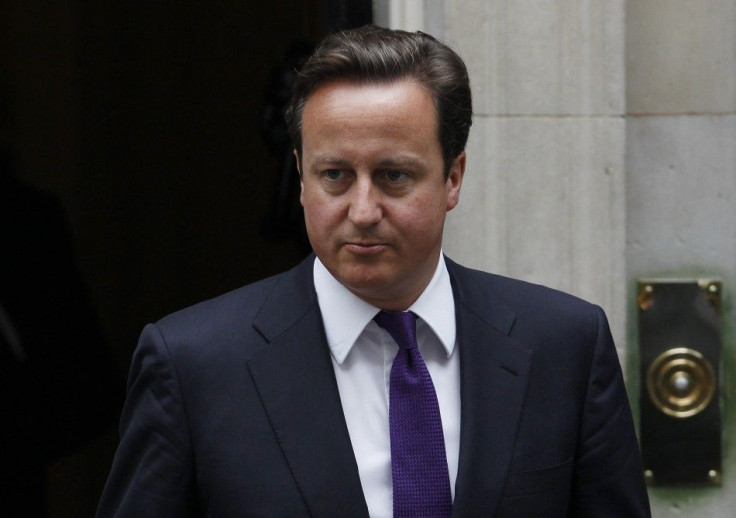London Riots 2011: PM Taps U.S. for Inspiration Solving Unrest

British Prime Minister David Cameron is seeking U.S. law enforcement advice on solving the gang violence as the country deals with violent unrest in its cities.
The prime minister said the government is also working with police, the intelligence services and companies to look at "whether it would be right to stop people communicating via social-networking Web sites and services when we know they are plotting violence, disorder and criminality."
He said the rioters were using Research In Motion's BlackBerry Messenger service as one of the tools. Meanwhile, police are also investigating the use of Twitter and Facebook.
Three people have been arrested by Scotland Yard police in Southampton, England, on suspicion of using social media and messaging to encourage rioting. Police swooped on houses across London on Thursday, detaining suspects and retrieving stolen goods.
Across England, about 1,500 people have been arrested since the disorder broke out Saturday, including 1,000 arrests in London alone.
The prime minister promised that offenders would pay for their crimes after the riots, many of which were organized through social media services and mobile messaging systems, according to the UK Telegraph.
Steve Kavanagh, deputy assistant commissioner of London's Metropolitan Police, admitted authorities initially didn't deploy enough officers. Cameron told The Associated Press that 16,000 police have been deployed on London's streets to deter rioters and reassure residents, and that those forces are expected to remain through the weekend.
Earlier this week, the prime minister recalled Parliament members back from summer recess to deal with the crisis. Cameron cut short his own vacation in Italy. Cameron has promised tough measures to stop further violence. "Nothing should be off the table," he told The AP.
Cameron also pledged damage compensation to victims of the violence and to uninsured people. Claims are expected to reach more than $300 million.
"We will help you repair the damage, get your businesses back up and running, and support your communities," he told The AP.
Twenty million pounds will be provided under the High Street Support scheme to help affected businesses get back up and running. Ten million pounds will be provided under recovery scheme to help councils meet the costs of clearing up the riot damage, according to the Telegraph.
Cameron said he would look to cities like Boston for inspiration, and he wanted to look at cities that had fought gangs "by engaging the police, the voluntary sector and local government."
Cameron said he would also be drawing on the success of antigang initiatives in Boston, Los Angeles and Strathclyde in Scotland. "I will be discussing how we can go further in getting to grips with gangs with people such as Bill Bratton, former commissioner of police in New York and Los Angeles," he told the Guardian.
Bratton, who now oversees a private security firm, told The Guardian that he would be "honored" to provide counsel and believed experiences in the U.S. had "significant relevance to the current situation in England".
As in London now, the concern in L.A. was that the violence spiraled to the point where the original trigger of rioting became irrelevant. Some of the mantras were taken up by Bratton when he was L.A. police chief from 2002 to 2009, according to The Guardian.
On the enforcement side, the city issued dozens of court injunctions against specific gang members -- severely limiting their movements and the people they could associate with, and banning them from carrying potential weapons like pocket knives and screwdrivers. The injunctions cover more than 10,000 gang members in 57 different city gangs, according to The Guardian.
Britain's riots began Saturday when an initially peaceful protest over a police shooting in north London turned violent. That clash triggered wider lawlessness that police struggled to halt.
It is yet to be known how U.S. law enforcement's advice will solve the violent unrest in the UK.
© Copyright IBTimes 2024. All rights reserved.




















